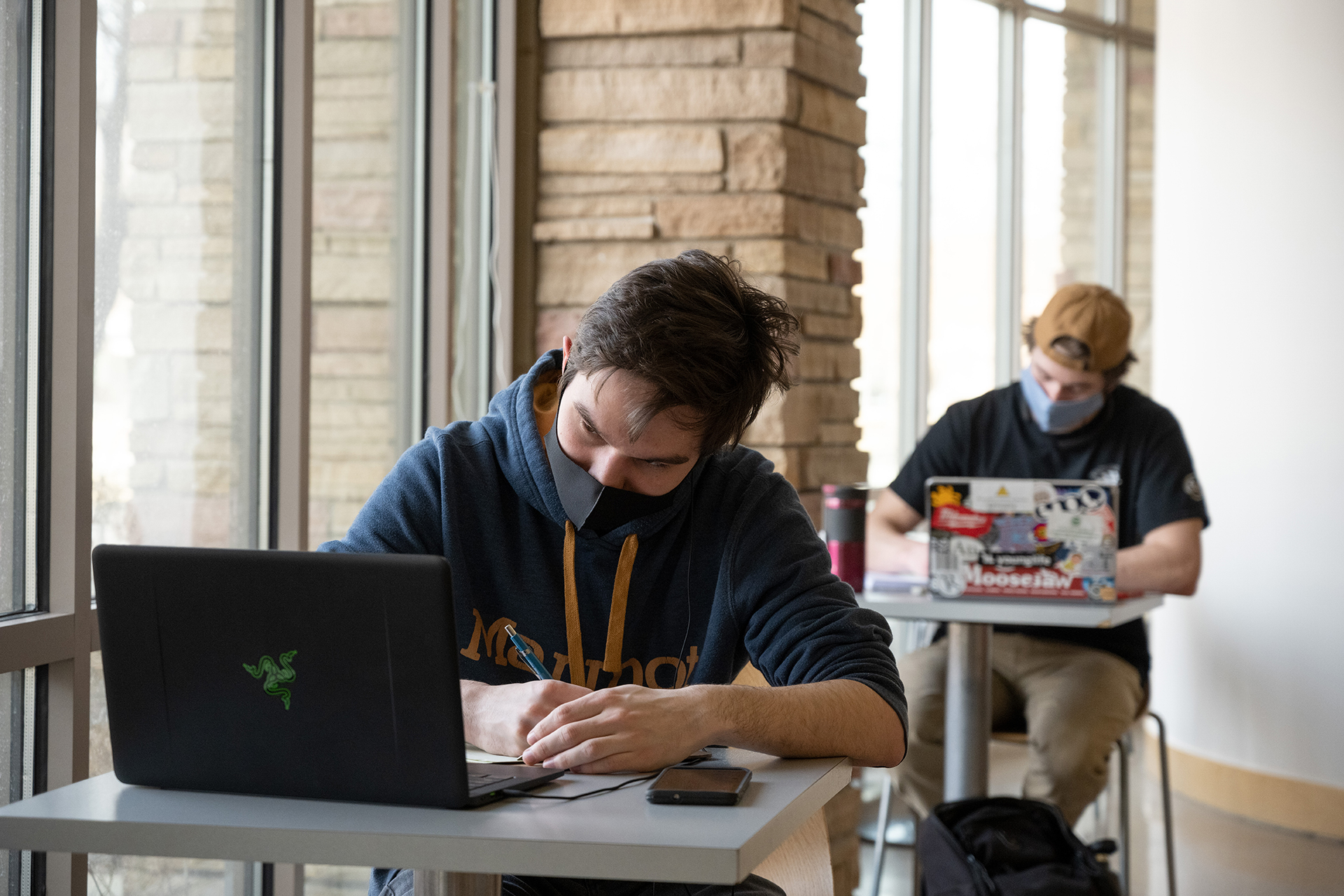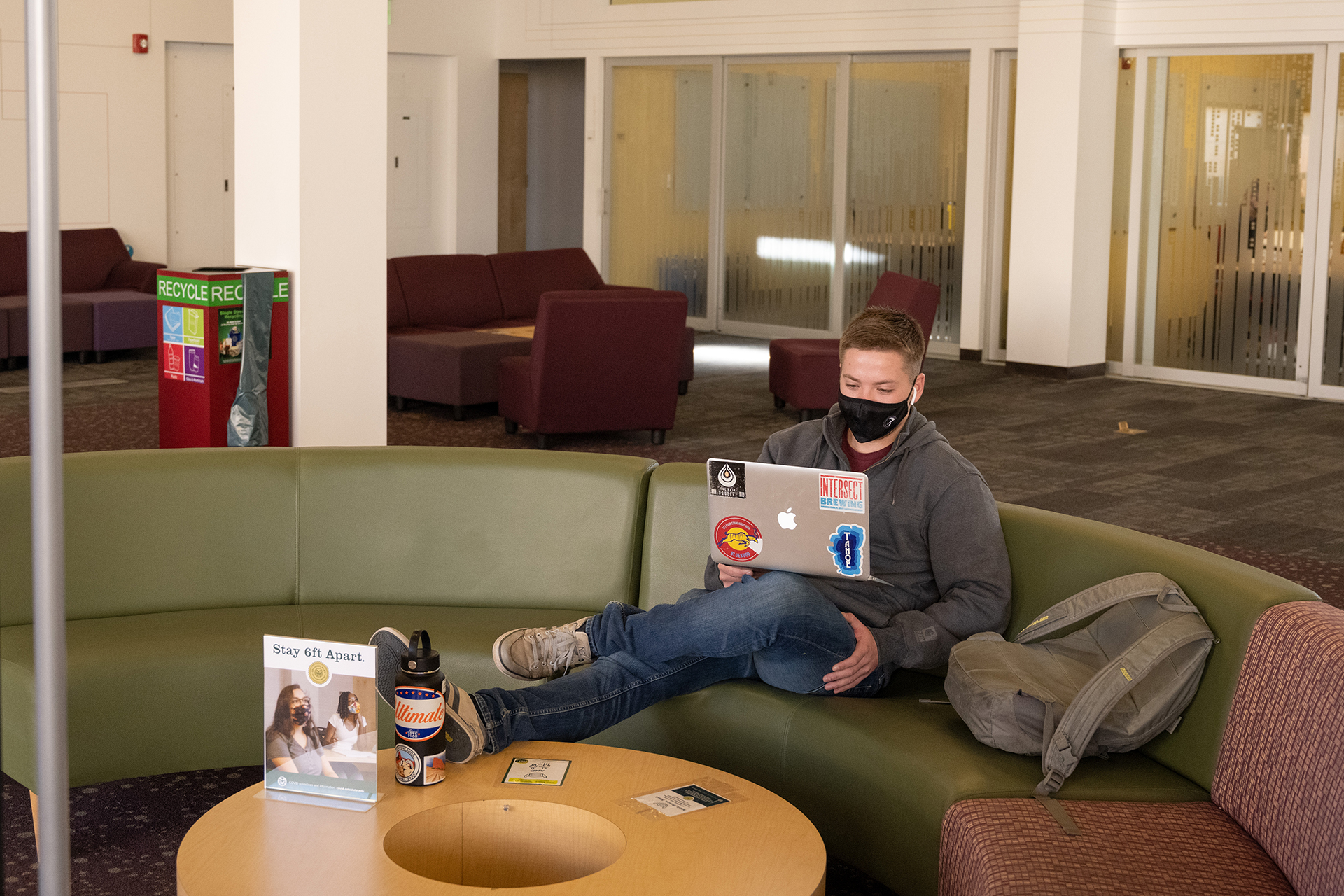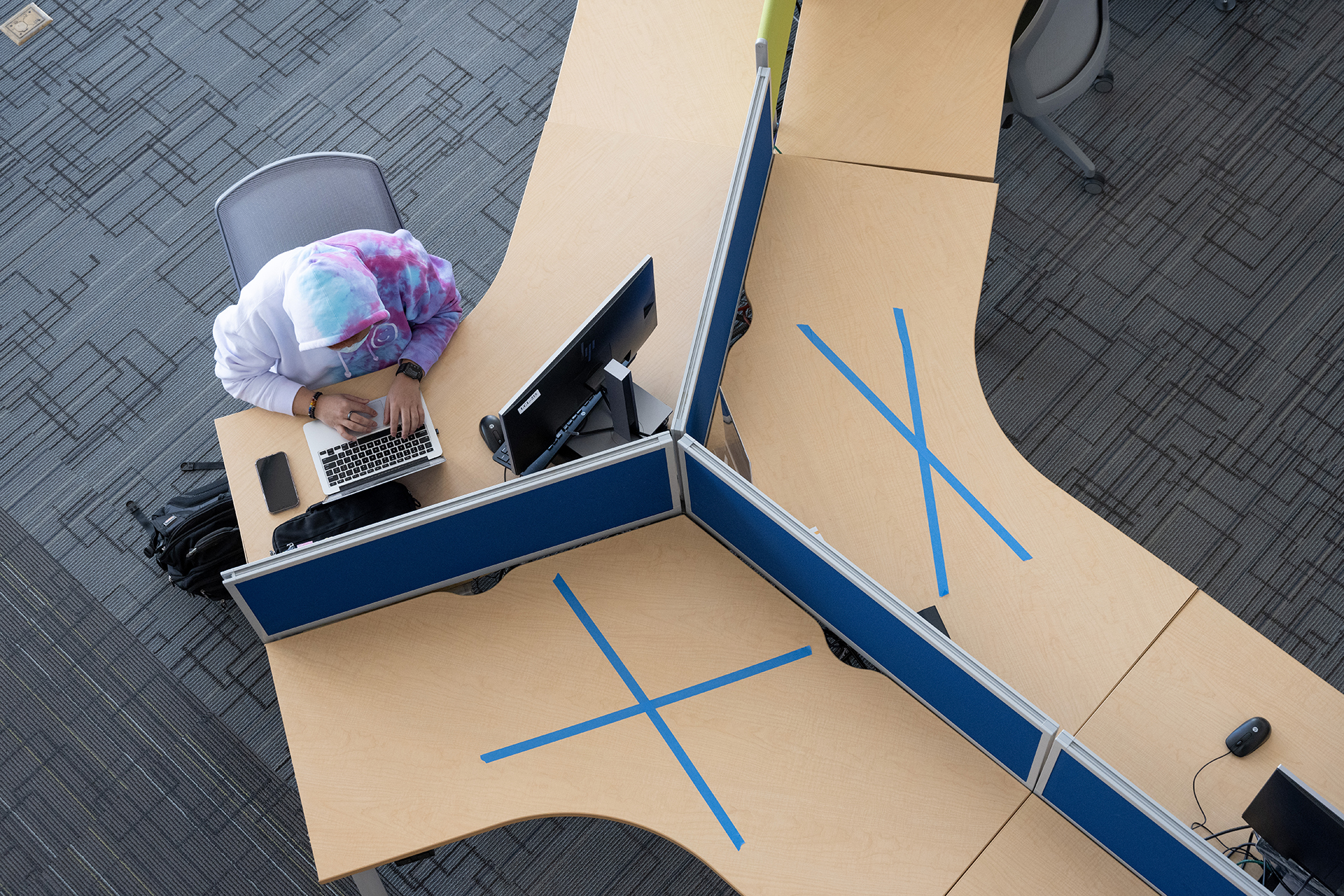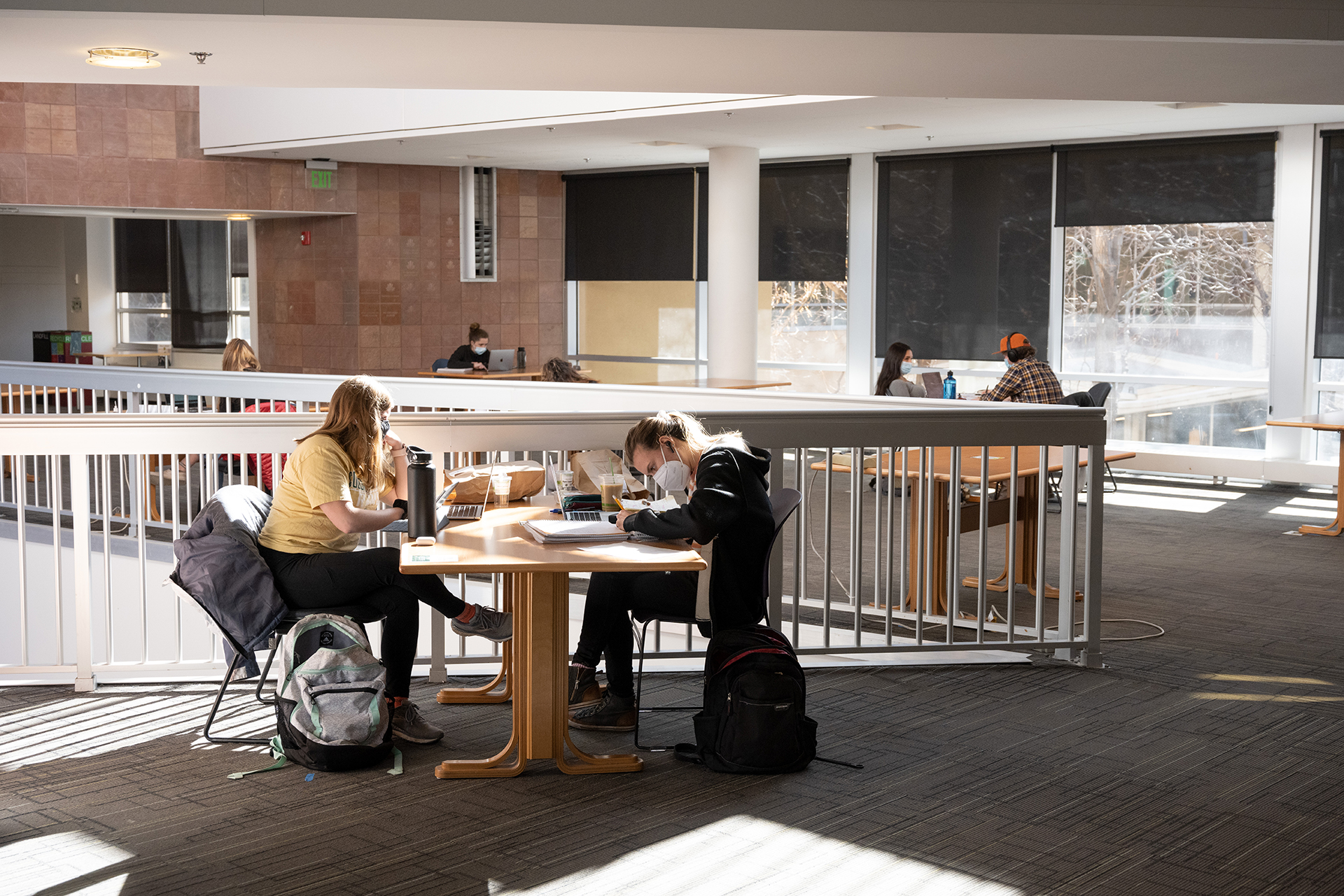
Students studying at Morgan Library. Photo by John Eisele/CSU Photography
In the year since the COVID-19 pandemic first hit Colorado State University, the staff at the Libraries have kept study spaces open, learning materials accessible, research support services going, and most importantly, people connected to each other.
In March 2020, student workers joined forces with librarians to answer the flood of library-related questions from anxious students, instructors and researchers, and the partnership has been a resounding success. Together, they fielded more than 2,300 questions via live chat during the Fall 2020 semester.
Keeping study spaces open for students
For years, CSU students have relied on Morgan Library for study space. Last summer, staff undertook the monumental task of preparing the 300,000-square-foot building for a socially distanced Fall semester. A skeleton crew of essential staff minimized the amount of furniture and moved more than 2,000 chairs and hundreds of tables.
By Move-In Week, the building was ready, and students were provided guidance about how to study (responsibly) at the Morgan Library during the pandemic.
For the Spring 2021 semester, 15 students were hired to help visitors understand and follow public health guidelines, which has enabled the library to stay open and extend its hours.
Digital learning materials for equitable access


Although a vast amount of library resources, like databases and e-books, were already digital and accessible from anywhere with an internet connection, there was still work to be done to ensure equitable access to course materials.
With access to print materials limited, staff navigated copyright issues and instructor needs to ready digital materials for remote instruction.
Collaboration was also important in the long-standing partnership between the CSU Libraries and the Student Disability Center to unbind, digitize, and rebind books to make the content accessible for students who use adaptive technologies.
“One of my biggest work-related fears going into the pandemic was that we would no longer be able to access the library and have books taken apart and put back together,” said Nico Gowdy, coordinator of accessible text at the Student Disability Center, who collaborates with Ann Schwalm, lead preservationist at the Libraries.
Since the Fall semester, the partners have converted 72 print books to accessible formats.
“With all of Ann’s and [the Libraries’] work, we can ensure that students with disabilities can still receive their accommodations and equitable access to course materials in a timely manner, ” Gowdy said.
Supporting student and professional researchers
In most years, the Libraries’ subject librarians are busy supporting student success by teaching in-person classes about how to do research and use library resources. With the pivot to remote learning, the subject librarians adapted their instruction to fit faculty and student needs.
Subject librarians taught 212 sessions in 2020, a mix of online and in-person classes, and developed 18 new videos, tutorials and guides to better facilitate asynchronous learning. One prolific librarian, Rob Sica, taught 20 online sessions to 451 students in the Honors program in a single week.
“They did a tremendous job of meeting and exceeding the needs of our students and faculty,” said Meggan Houlihan, co-coordinator of the subject librarians. “They created accessible videos, innovative tutorials, and research guides to help students navigate the research process.”
CSU researchers haven’t stopped researching, so the librarians haven’t stopped supporting them. In 2020, subject librarians and archivists answered more than 1,600 in-depth questions about research via email, video consultation and phone.
Creating opportunities for human connection

Staff have also stepped up for each other. The pandemic has revealed the critical importance of our most basic human need: to connect with and care for each other.
The Libraries’ staff are human beings first and professionals second. In recognition of that, a grassroots group, the Library Employee Community Conversations Group, started an informal weekly gathering for peers to connect with each other. A loosely organized but tightly knit collective, the group looks for ways to support each other by building community and sharing information and resources.
Although so much has changed at the Libraries in the past year, what remains unchanged is the staff’s stalwart dedication to supporting student success, research brilliance, and their colleagues at Colorado State University.